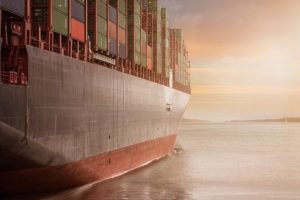

The Philippines is strictly implementing the International Maritime Organization’s (IMO) global sulfur cap policy on marine fuel oil since the new policy took effect on January 1, 2020, according to the Philippine Coast Guard (PCG).
PCG National Port State Control Service (NPSCS) director Capt. Inocencio Rosario, Jr., in a phone interview with PortCalls, said the Philippines, as a signatory of the International Convention for the Prevention of Pollution from Ships (MARPOL Convention), is enforcing the policy on foreign-flag vessels calling Philippines ports.
PCG, as the country’s port state control implementer, monitors compliance of foreign-flag vessels, with NPSCS as its operating unit for executing port state control.
MARPOL Annex VI requires all ships in non-emission control area zones to limit the sulfur content of their fuels from 3.50% to 0.50% by January 1, 2020. The Philippines ratified MARPOL Annex VI in 2018.
The regulation applies to all ships, whether they are on international voyages between two or more countries, or on domestic voyages solely within the waters of a party to the MARPOL Annex.
The sulfur cap policy, also known as IMO 2020, aims to reduce the amount of sulfur oxides emanating from ships in order to gain health and environmental benefits for the world, particularly for populations living close to ports and coasts.
Port state control is the measure adopted by a port state to ensure that foreign-flag vessels visiting its ports possess the relevant certificates and documents required by IMO conventions, and that the crew and the overall condition of the ship—including its equipment, machinery spaces and accommodation, and hygienic conditions on board—meet the provisions of the relevant instruments.
Rosario said port state control officers–the only Coast Guard personnel allowed to board foreign-flag vessels–are the ones checking the International Certificate of Air Pollution Prevention (IAPP) of foreign ships calling the Philippines.
IAPP is required under Regulation 5 of MARPOL Annex VI and covers the survey on sulfur oxides and particulates, ozone-depleting substances, nitrogen oxides, volatile organic compounds, and shipboard incineration.
Rosario added that under the Convention, ship owners must provide equipment that will help vet the veracity of their IAPP.
There are currently more than 100 port state control officers—who are trained to standards implemented in other Asia-Pacific countries—deployed in various coast guard districts in the country.
Rosario said there have so far been no reports of non-compliance to the new IMO policy by foreign ships calling the Philippines. He explained that foreign vessels are usually compliant with IMO conventions, as required of them by their flag states and also to avoid penalties or sanctions.
Phased implementation in domestic industry
While the Philippines through PCG is already implementing IMO 2020 for foreign ships, a phased implementation is being pushed for domestic vessels, whose compliance depends on several factors, such as their readiness and availability of compliant fuel.
READ: Phased implementation of IMO 2020 eyed for local shipping
Maritime Industry Authority (MARINA) Shipyards Regulation Service director Ramon Hernandez had earlier noted that compliant fuel is not yet available in the country, and that refineries would need two to three years to construct the storage facilities for such fuel.
Domestic shipping lines have also raised concerns about the cost implications of the new policy, as low sulfur fuel oil (LSFO) is more expensive than the bunker fuel they currently use.
Hernandez noted that according to IMO, “it’s up [to] the flag state” on how it would implement the policy.
MARINA is currently spearheading the drafting of a roadmap on the phased implementation of IMO 2020 for domestic ships by 2025.
Once the survey is done and the roadmap finalized by 2020, Hernandez said a memorandum circular on the IMO 2020 implementation for domestic ships will be issued.
But while the roadmap is still being finalized, MARINA is already encouraging domestic ship owners and operators to craft their transition plans for complying with IMO 2020.
MARINA is also urging all Philippine-registered ships operating overseas to ensure compliance with IMO 2020 by January 2020. – Roumina Pablo




